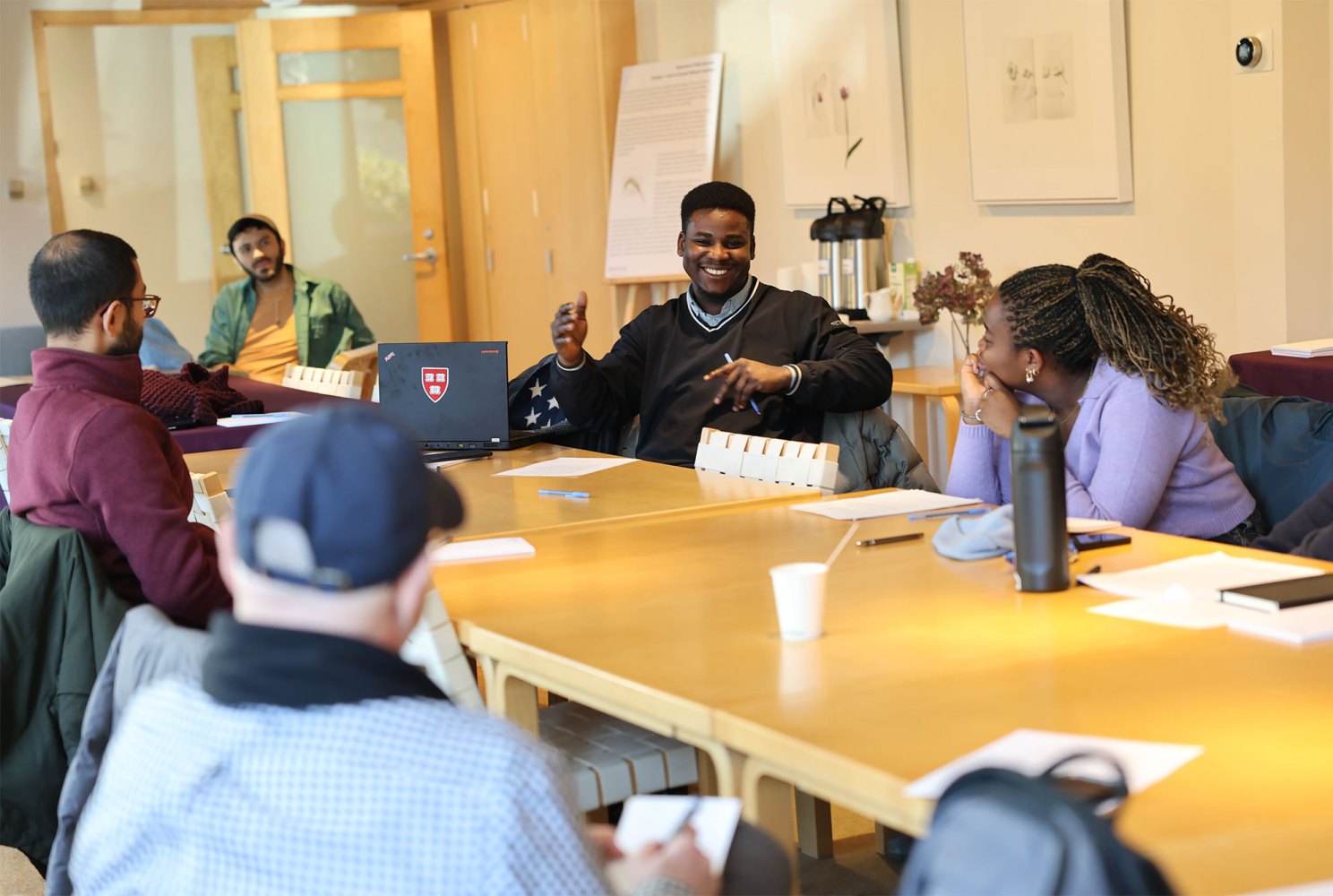CSWR workshops help scholars master the art of writing

Students review and exchange suggestions about their papers during an editing workshop taught by CSWR writing and editing specialist Aaron Ullrey.
Photo by Ashley Zigman
The written word is still the quintessential portal from the academic mind to the research community and beyond through scholarly papers, books, and articles, even in the electronic and social media age. What is vital in today’s media-centric landscape is the art of writing with the eyes of the reader in mind.
Bearing this reality in mind, the Center for the Study of World Religions (CSWR) is sharing the expertise of its researchers and staff to help Harvard students, scholars, researchers, and affiliates improve their writing skills through a series of workshops exploring the process of writing, creativity, peer editing, and publication.
“The hardest thing is getting people used to critique and understanding that the critique is constructive,” said Aaron Ullrey, research associate, Transcendence and Transformation, and writing and editing specialist at the CSWR. “Academic editing is an act of love. Feedback on writing is our love language, so remember that, even when you receive harsh commentary, it’s a strange love, but love nonetheless.”
The series kicked off on Jan. 17 with a peer editing class led by Ullrey. A second session explored how to craft compelling article pitches to editors, led by Rachael Petersen, a writer, scholar, and program lead for the “Thinking With Plants and Fungi” initiative at the CSWR. A third session focused on the creative art of revision led by Sherah Bloor, a poet and editor-in-chief of “Peripheries: A Journal of Word, Image, and Sound.”
Nearly 20 participants from around the University registered for the three sessions, which aimed to provide researchers with platforms and tools for sharing their work with various audiences inside and outside academia.
Sarah Adegbite, a first-year student at Harvard Divinity School, brought a paper she wrote last term on Black women’s literature and theology. In it, she said, she is reimagining what being Black means in relation to Christian theology.
“I thought hearing my rough draft read aloud was like someone else had written it, and I was seeing it for the first time,” she said. “That gave me a new way to think about how people understand my work because when you’re so into something, you know what you’re saying, but hearing them talking about it was clarifying and helpful. I enjoyed that process.”
The workshops also offered guidance for writing projects beyond class papers. Outside the university experience, editors, publishers, and other gatekeepers of written work are less obligated to read or even respond to papers, articles, and manuscripts submitted for publication.
“Scholars often find their work confined to academic journals hidden behind paywalls, limiting their readership to a narrow audience,” said Gosia Sklodowska, executive director of the CSWR. “We are now thrilled to make our in-house experts available to the Harvard community and offer workshops that can benefit students and researchers looking for ways to amplify their voice and share their work more broadly.” The CSWR is planning additional sessions on Feb. 28 and March 28.




